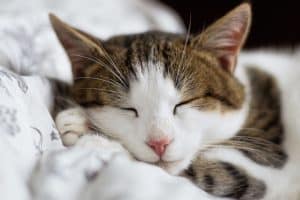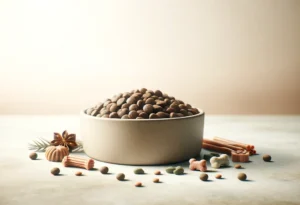Cats have a reputation for being independent and mysterious creatures, but one aspect of their health that isn’t often discussed is their vulnerability to kidney failure. So why exactly are cats prone to kidney failure?
Cats have a unique physiology that makes them more susceptible to kidney issues compared to other animals. Let’s explore the reasons behind this vulnerability and how you can help your feline friend stay healthy.
The Anatomy of a Cat’s Kidneys
Cats have uniquely designed kidneys that make them more susceptible to kidney failure compared to other animals. Unlike humans, cats’ kidneys have a higher concentration of functional units called nephrons, which are responsible for filtering waste from the blood. This increased nephron density puts a higher demand on the kidneys and can lead to strain over time.
Furthermore, cats have a limited ability to concentrate urine, which means they need to produce a higher volume of urine to eliminate waste effectively. This constant need to produce urine can put a significant burden on the kidneys and increase the risk of damage or failure.
Common Causes of Kidney Failure in Cats
There are various factors that can contribute to kidney failure in cats. Age plays a significant role, as older cats are more prone to kidney issues due to the natural aging process. Genetics also play a part, as certain breeds may be predisposed to kidney problems. Additionally, underlying health conditions such as hypertension or diabetes can further increase the risk of kidney failure in cats.
Diet is another crucial factor to consider. Cats who are not receiving enough water intake through their food may become dehydrated, putting extra stress on their kidneys. High-quality, moisture-rich diets are essential for maintaining optimal kidney health in cats.
Additionally, toxic exposure, infections, and urinary obstructions can all contribute to kidney failure in cats. Regular veterinary check-ups, a balanced diet, and providing plenty of fresh water can help reduce the risk of kidney issues in your feline friend.
Symptoms of Kidney Failure in Cats
Being aware of the symptoms of kidney failure in cats is crucial for early detection and intervention. Increased thirst is often one of the first signs, as the kidneys are unable to concentrate urine effectively, leading to more frequent urination. Weight loss can also occur as the kidneys lose their ability to regulate essential nutrients in the body. Keep an eye out for changes in urination habits, such as urinating more frequently or in unusual places.
Diagnosing Kidney Issues in Cats
Diagnosing kidney problems in cats involves a series of tests to identify the underlying issues. Blood tests are commonly used to assess kidney function by measuring levels of waste products in the blood. Urinalysis can provide additional information by analyzing the urine for abnormalities. In some cases, imaging techniques such as ultrasound or X-rays may be necessary to visualize the kidneys and surrounding structures.
- Monitor water intake: Keep track of how much water your cat is drinking as increased thirst can be a key indicator of kidney issues.
- Maintain a healthy diet: Feeding your cat a balanced diet can help support kidney function and overall health.
- Regular veterinary check-ups: Schedule routine check-ups with your veterinarian to catch any potential kidney problems early on.
- Consult a specialist: If your cat has been diagnosed with kidney failure, consider seeking advice from a veterinary specialist for specialized care.
By staying informed and proactive, you can help ensure the well-being of your feline friend when it comes to kidney health.
Why cats are prone to kidney failure:
Cats are notorious for their kidney issues, primarily due to their anatomy. Those little kidneys are working overtime to filter out waste and regulate important bodily functions. They’re like the unsung heroes of the feline body, but they can only take so much before they start to struggle.
One common culprit for kidney failure in cats is chronic dehydration. Cats, being the finicky creatures they are, often don’t drink enough water. This lack of hydration puts extra stress on their kidneys, leading to potential long-term damage. So, it’s crucial to encourage your cat to drink more water and ensure they have access to fresh water at all times.
Additionally, aging plays a significant role in kidney function. As cats get older, their kidneys naturally decline in efficiency, making them more susceptible to kidney issues. Genetics can also play a part, as some cat breeds are predisposed to kidney problems. Keep an eye on your furry friend, especially as they start to enter their golden years, and be proactive in monitoring their kidney health.
Treatment Options for Kidney Failure:
When it comes to managing kidney failure in your feline friend, there are several treatment options to consider. The key is to work closely with your veterinarian to come up with a plan that suits your cat’s individual needs. Here are some common approaches:
Dietary Changes : Switching to a kidney-friendly diet can help reduce the workload on your cat’s kidneys. Look for specially formulated foods that are low in phosphorus and high in quality protein.
Medication : Your vet may prescribe medications to help manage your cat’s symptoms and slow the progression of kidney disease. These can include medications to control blood pressure or boost kidney function.
Fluid Therapy : In some cases, fluid therapy may be recommended to help flush toxins out of your cat’s system and keep them hydrated. This can be done either intravenously at the vet clinic or through subcutaneous injections at home.
In addition to these treatment options, it’s important to monitor your cat closely for any changes in behavior or symptoms. Regular check-ups with your vet can help ensure your cat’s kidney health is being properly managed.
Preventing Kidney Issues in Cats:
Prevention is always better than cure when it comes to kidney problems in cats. Here are some tips to help keep your feline friend’s kidneys in tip-top shape:
- Regular Veterinary Check-ups: Stay on top of your cat’s health by scheduling regular check-ups with your veterinarian. They can catch any potential issues early on and provide guidance on how to keep your cat healthy.
- Balanced Diet: Feed your cat a balanced diet that is appropriate for their age and health status. Avoid feeding excess treats or foods high in phosphorus, which can put strain on the kidneys.
- Adequate Hydration: Encourage your cat to drink plenty of water by providing multiple water sources around the house and considering a pet fountain to entice them to drink more.
By taking proactive steps to prevent kidney issues in your cat, you can help them live a long and healthy life. Remember, a little prevention now can save you and your furry friend a lot of heartache down the road.
Diet and Nutrition for Cats with Kidney Disease
Cats are more susceptible to kidney failure due to a variety of factors, including their unique physiology and genetic predispositions. One major contributing factor is their high-protein diet, which can put strain on their kidneys over time. This is why it’s crucial to switch to a renal-friendly diet if your feline friend is facing kidney issues.
Feeding your cat a low-protein, low-phosphorus diet can help reduce the workload on their kidneys, allowing them to function more effectively. Look for specially formulated kidney support cat foods at your local pet store or consult with your veterinarian for recommendations. Hydration is also key in managing kidney disease, so make sure your cat has access to fresh water at all times.
Monitoring your cat’s food intake and weight is essential. Regular check-ups with the vet can help you adjust their diet as needed. Remember, a balanced and appropriate diet can make a significant difference in your cat’s quality of life when dealing with kidney disease.
Tips for Feeding a Renal-Friendly Diet:
- Consult with your vet: Get professional advice on the best food choices for your cat.
- Offer small, frequent meals: This can help with digestion and nutrient absorption.
- Use wet food: It can be easier on your cat’s kidneys compared to dry kibble.
- Limit treats: Keep treats to a minimum to avoid overloading your cat with unnecessary nutrients.
- Consider supplements: Your vet may recommend specific supplements to support kidney function.
Supporting Your Cat with Kidney Failure
When your beloved feline companion is diagnosed with kidney failure, creating a supportive environment becomes crucial. Cats with kidney disease require extra care and attention to ensure they remain comfortable and healthy despite their condition.
Comfort is key. Provide a warm, quiet, and cozy space for your cat to rest and relax. Consider adding extra bedding or a heating pad to keep them comfortable. Monitor your cat’s behavior closely and look out for any signs of discomfort or distress.
Regular veterinary check-ups are essential for cats with kidney failure. Your vet will help you monitor your cat’s condition and adjust their treatment plan as needed. Be proactive in managing their health to ensure they have the best possible quality of life.
Emotional support is also important. Spend quality time with your cat, offer them affection and attention, and keep them engaged with interactive toys and activities. Remember, your love and care can make a world of difference to a cat battling kidney failure.
Interesting Facts About Feline Kidneys
Feline kidneys play a crucial role in maintaining hydration and electrolyte balance in cats. These organs are designed to concentrate urine efficiently, allowing cats to conserve water in their bodies, which is vital for their well-being. Additionally, cats have a high protein requirement, and their kidneys are responsible for processing excess protein effectively. This unique ability of feline kidneys highlights their importance in a cat’s overall health.
Resources for Cat Owners
As a cat owner, ensuring your feline companion’s kidney health is essential. Stay informed and educated by exploring reputable resources such as the American Association of Feline Practitioners and the American Veterinary Medical Association. These organizations offer valuable insights into preventing kidney issues in cats, as well as guidance on recognizing early signs of kidney failure. Remember, early detection and proactive care can make a significant difference in your cat’s health.
Helpful Resources: 1. American Association of Feline Practitioners (AAFP) 2. American Veterinary Medical Association (AVMA) 3. International Cat Care (ICC) 4. The Cornell Feline Health Center
Remember, your cat’s well-being is in your hands, so stay informed and proactive in maintaining their kidney health.
Alex, a passionate animal lover, has experience in training and understanding animal behavior. As a proud pet parent to two dogs and three cats, he founded AnimalReport.net to share insights from animal experts and expand his knowledge of the animal kingdom.




